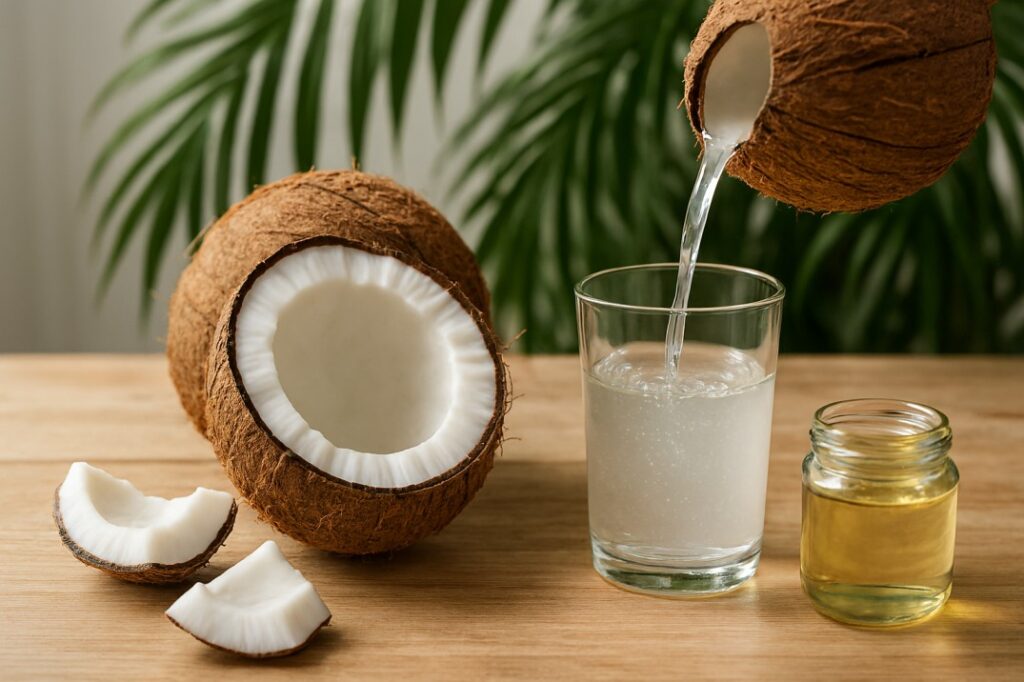
health benefits of coconut with water, flesh, and oil on a tropical table setting
Discover surprising health benefits of coconut — from hydration to antimicrobial action — with simple tips and research-backed facts. Read more now.
Surprising Health Benefits of Coconut
Coconut is more than a tropical snack.
It is a whole toolbox of nutrients.
Yet many people only know coconut as a cooking oil or a beach treat.
In this post, we’ll explore the surprising health benefits of coconut that you probably didn’t know.
We’ll use plain language.
We’ll cite research.
And we’ll give practical tips.
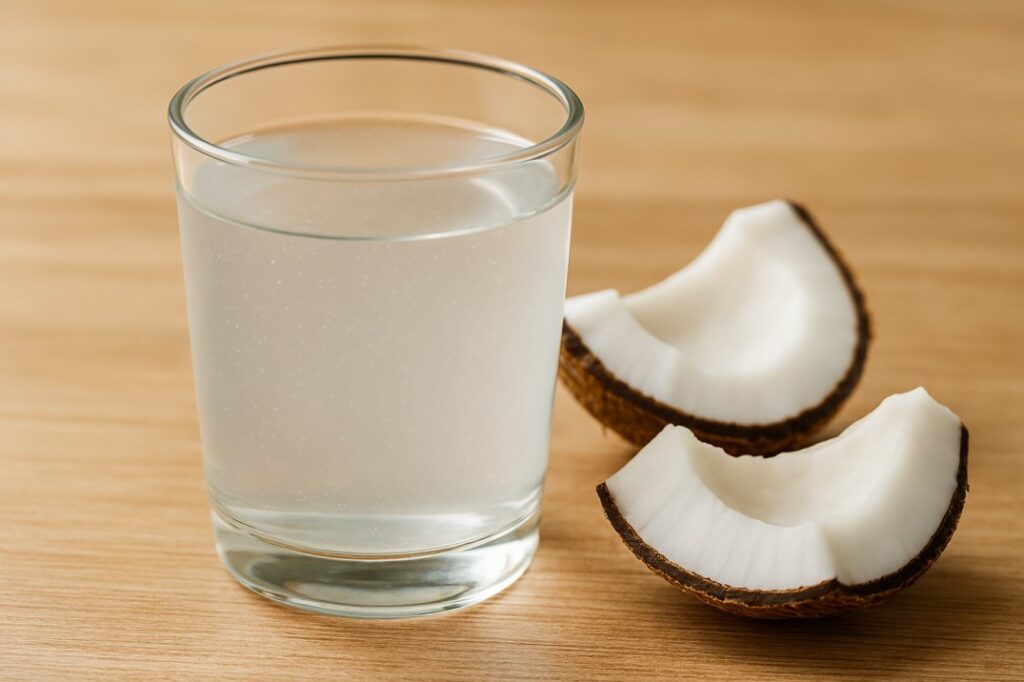
Why coconut matters: a quick snapshot
Coconut offers many different parts you can use: water, flesh (meat), milk, oil, and fiber from the residue.
Each part has unique nutrients. For example, coconut water contains electrolytes. Coconut flesh offers fiber. Coconut oil is rich in medium-chain fats such as lauric acid. Together, these give coconut a range of health effects.
Health benefits of coconut: 1) Natural hydration and electrolytes
Coconut water is a low-calorie drink.
It supplies potassium, sodium, and magnesium.
Thus, it helps restore fluids and electrolytes after exercise or mild dehydration.
Studies have shown that coconut water can rehydrate people similarly to sports drinks in some cases. PMC, Mayo Clinic
Practical tip: Use fresh or pure coconut water.
Avoid bottled varieties with added sugar.
Health benefits of coconut: 2) Antimicrobial action — lauric acid
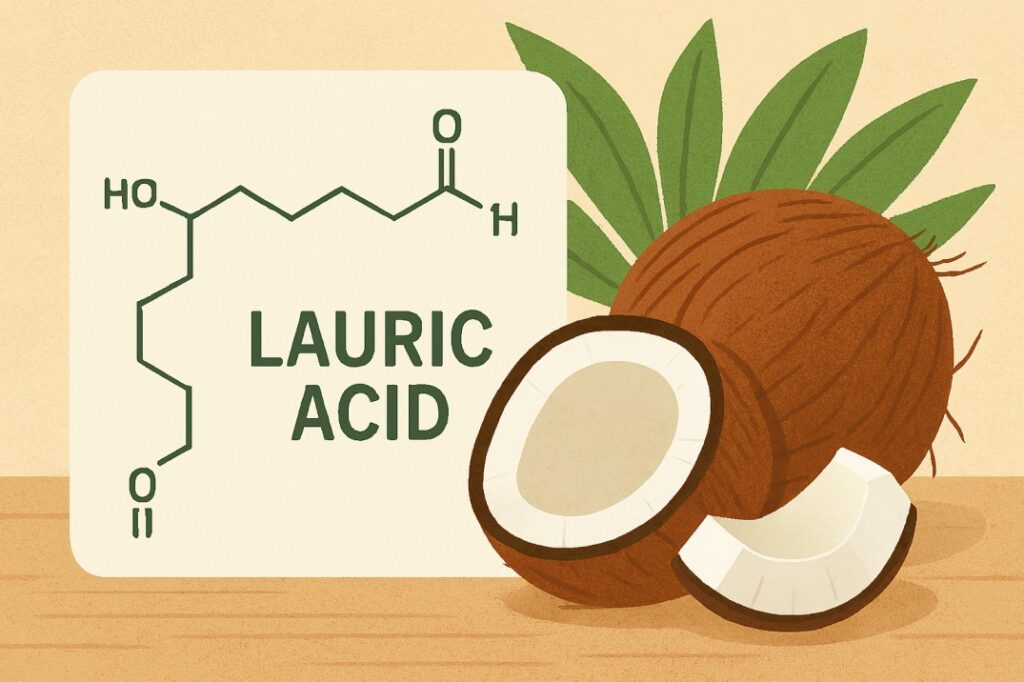
Coconut oil contains lauric acid.
Lauric acid can disrupt the membranes of some microbes.
Lab studies show lauric acid and related medium-chain fatty acids can inhibit bacteria, fungi, and some enveloped viruses. This explains why coconut oil appears in some natural hygiene and dental products. PMC, PubMed+1
Important note: Most antimicrobial evidence comes from test-tube and small clinical studies. It is not a cure-all. Use it as a complement, not a replacement for medical treatment.
Health benefits of coconut: 3) Gut health and prebiotic fiber
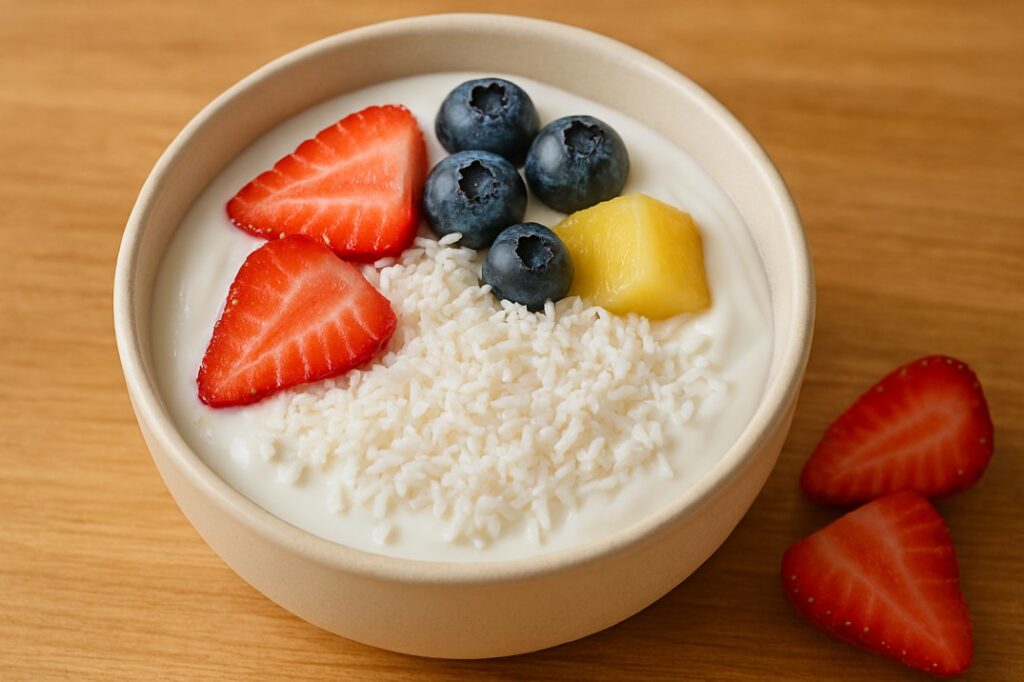
Coconut meat and by-products contain fiber and polysaccharides.
These fibers can act as prebiotics.
They support friendly bacteria in the gut and improve digestion in lab and small human studies. This may help with bowel regularity and gut balance. PMC, Taylor & Francis Online, RSC Publishing
How to use: Add shredded fresh coconut to yogurt, smoothies, or breakfast bowls for a fiber boost.
Health benefits of coconut: 4) Quick energy (MCTs) and possible appetite effects
Coconut fats include medium-chain triglycerides (MCTs).
MCTs are digested differently from long-chain fats.
They are more rapidly absorbed and used for quick energy.
Some people report a short-term gain in energy and reduced appetite. However, the long-term weight benefits are not proven, and research is mixed. PMC
Note: Coconut oil contains MCTs but also a high share of saturated fat overall. So use it carefully.
Health benefits of coconut: 5) Skin and hair benefits
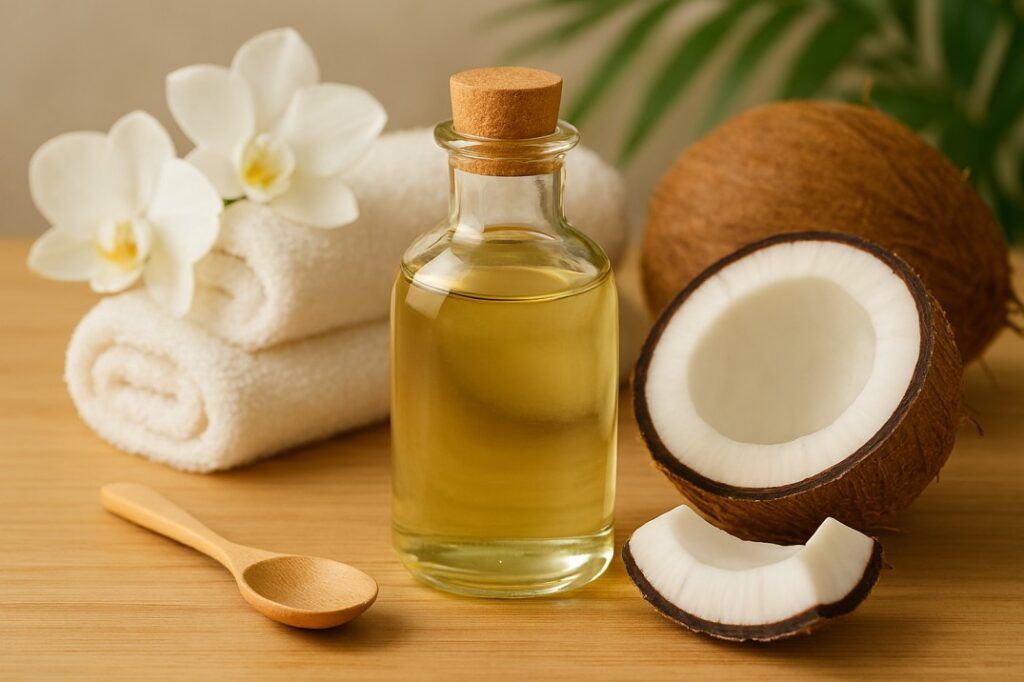
Coconut oil is widely used on skin and hair.
It can act as a moisturizer.
Some research shows it may reduce protein loss in hair when used as a pre-wash treatment. Also, it may help certain dry-skin conditions as a simple emollient. PMC
Tip: For face use, test a small patch first. Coconut oil can clog pores for some people. Use as a body moisturizer or hair mask if your skin tolerates it.
Health benefits of coconut: 6) Oral health support (oil pulling and gums)
Some small studies suggest coconut oil may help reduce oral bacteria and inflammation in the mouth when used in practices like oil pulling. Recent clinical work has shown potential for lowering gum inflammation in specific settings. Still, oil pulling should not replace brushing and dental care. PMC, PubMed
A key caution: saturated fat and heart health
Coconut oil is high in saturated fat.
Major heart health groups caution that saturated fat raises LDL (bad) cholesterol.
The American Heart Association recommends limiting saturated fats. This matters because high LDL is linked to higher heart disease risk. So, be moderate with coconut oil in cooking and daily use. www.heart.org+1, AHA Journals
Practical balance: Use olive oil for everyday cooking and reserve coconut oil for flavor or occasional uses.
Surprising uses and small wins
- Coconut water may help with mild dehydration from exercise. PMC
- Coconut fiber from residue can be turned into prebiotic ingredients used in functional foods. PMC
- Lauric acid in coconut products shows promising antimicrobial action in labs. PMC
These small wins make coconut a useful addition to a varied diet.
How to choose and use coconut wisely
- Prefer fresh coconut water or unsweetened brands.
- Eat the flesh for fiber.
- Use virgin coconut oil sparingly.
- Try coconut in complex dishes, not in large daily doses.
- If you have high cholesterol, discuss coconut oil with your clinician.
FAQ — Surprising health benefits of coconut
Q: Is coconut water better than sports drinks?
A: For many people, coconut water can rehydrate as well as some sports drinks. It has fewer added sugars. But sports drinks may contain a tailored mix of carbs and sodium for heavy endurance exercise. PMC+1
Q: Does coconut oil raise cholesterol?
A: Coconut oil raises both HDL and LDL cholesterol in many studies. Because LDL is a risk factor for heart disease, major health bodies advise limiting saturated fat intake. www.heart.org, AHA Journals
Q: Can I use coconut oil for skin every day?
A: Some people can. But others may get breakouts. Test a small skin patch first.
Q: Is coconut a good weight-loss food?
A: Coconut contains calories and saturated fats. Small studies suggest short-term appetite effects from MCTs, but long-term weight-loss benefits are not proven. Use it in moderation.
Q: Are there allergies to coconut?
A: Yes. Coconut is a tree nut for labeling in some countries, and allergies can occur. If you suspect a reaction, stop and see a doctor.
This article is for general information only. It does not replace medical advice. Consult your doctor before making major changes to your diet, especially if you have heart disease, high cholesterol, or allergies.
Did you learn something new about coconut?
If yes, share this post with a friend.
Also, subscribe or follow for more simple, science-backed health guides.
: If you found these tips helpful, share this article with friends and family. For more science-backed health insights, explore our latest blogs on Nowspress.




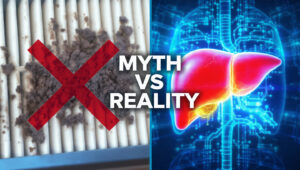

Your point of view caught my eye and was very interesting. Thanks. I have a question for you. https://accounts.binance.com/sl/register?ref=I3OM7SCZ